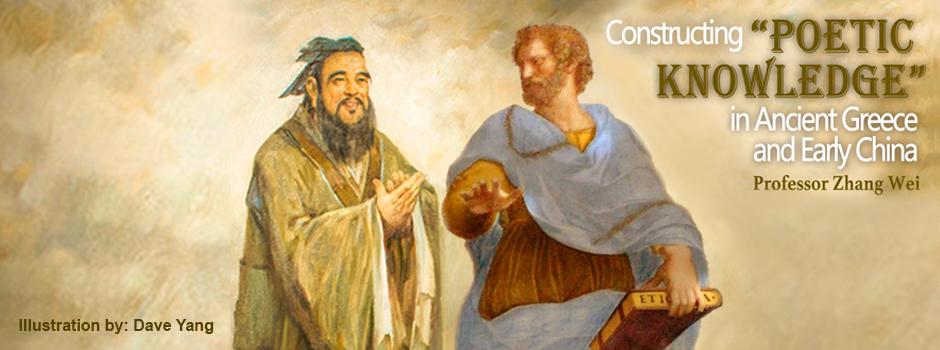Greek classics and Chinese classics -- are they diametrically opposed entities? On March 4, Dr. Zhang Wei, Professor of Classics at Fudan University, presented a comparison of Greek and Chinese ways of constructing poetic knowledge to a contemplative NYU Shanghai audience.
Many argue that these two interests have nothing in common, that trying to draw comparisons is an exercise in futility. Wei studied both the works of Homer and Socrates, as well as Confucian classics, and he disagreed.
Currently researching the comparative study of Greek and Chinese classic poetry, Wei turned the talk to constructing poetic knowledge -- or simply put, the ways of which Greek and Chinese poets conveyed various kinds of information to their readers.

He explained that in classical Greek poetry, knowledge comes from divine inspiration. The poet is inspired by outside sources, such as the Muses, and reveals this knowledge to readers much like a prophet would.
In Chinese traditions, there is more focus on the author’s self. Poetic knowledge comes from the author’s own experiences, feelings and thoughts. Especially in Confucian classics, a particular emphasis is put on the poet’s moral character. By learning about the author’s experiences, Wei explained, the readers can improve their own moral character.
During the Q&A, Wei called for other scholars to add to his research comparing poetic knowledge in Confucius and Socrates. He hopes that his work will encourage students to obtain a wider cultural awareness.
(Text by: Mari Allison)


